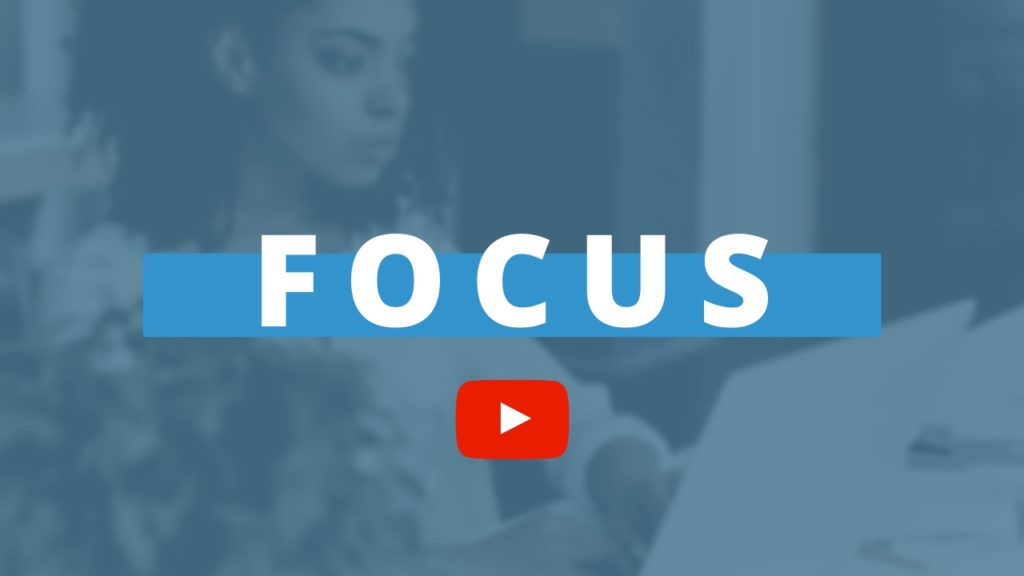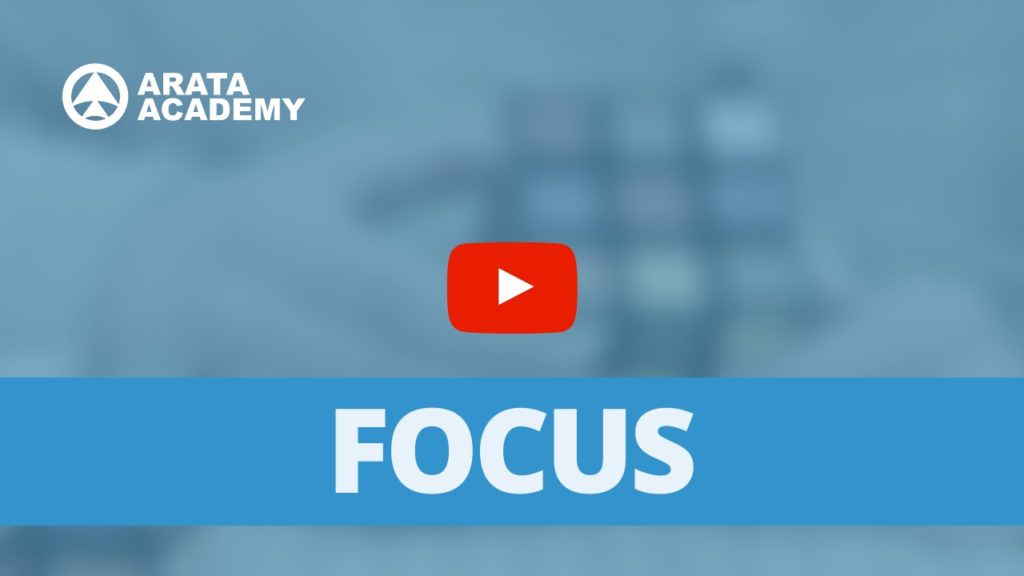Hello! Seiiti Arata. A proactive person is one who takes control of his life, who defines objectives, who dares to dream and who does not procrastinate. He performs well-executed actions to achieve these goals.
1. Proactive people make their own way.
Most people are just waiting for some opportunity to fall from the sky. These are people who react to events and happenings. The reactive person can only choose from among what seems to be available at that time.
Proactive people make their own way. The proactive person is the architect of his own life. You can go to arata.se/hello48 to see our previous episode about how to make an excellent life plan.
Of course even proactive people react from time to time. The reaction, by itself, is not an absolute evil to be avoided. As with everything in life, we want to beware of excess. And unfortunately, many people are excessively reactive. This is fine when events around us are either neutral or positive. Let me explain:
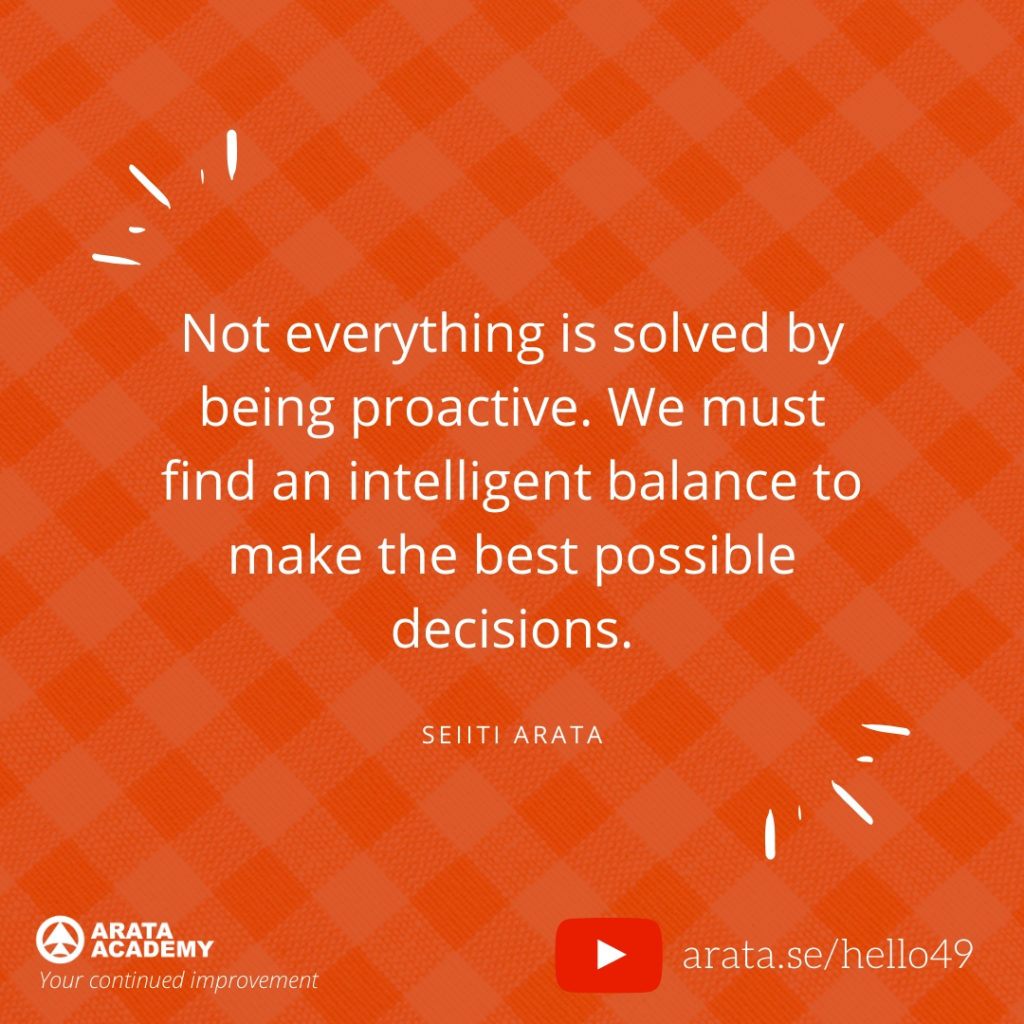
Imagine that the economy is doing well and there are many jobs. In this case, the reactive person who is simply following the herd will find a good pasture. In a thriving environment, the reactive person will find and accept one of the different job offers that the market provides. However, the reactive posture is problematic when times get tough, because there are fewer viable options.
2. Reactive vs. proactive mindset
In the previous episode, we showed how one single word can greatly change the quality of a question. Instead of asking how to make a life plan, or how to make a good life plan, I’m going to ask how I can make an EXCELLENT life plan.
The way we formulate questions influences the quality of the answers we find and the results that we harvest.
Here are some differences between the reactive and proactive mindsets:
– How much money will they pay if I do this or that? (reactive)
– How much do I want to make? What do I need to do to provide value and earn that money? (proactive)
– Where are the opportunities? (reactive)
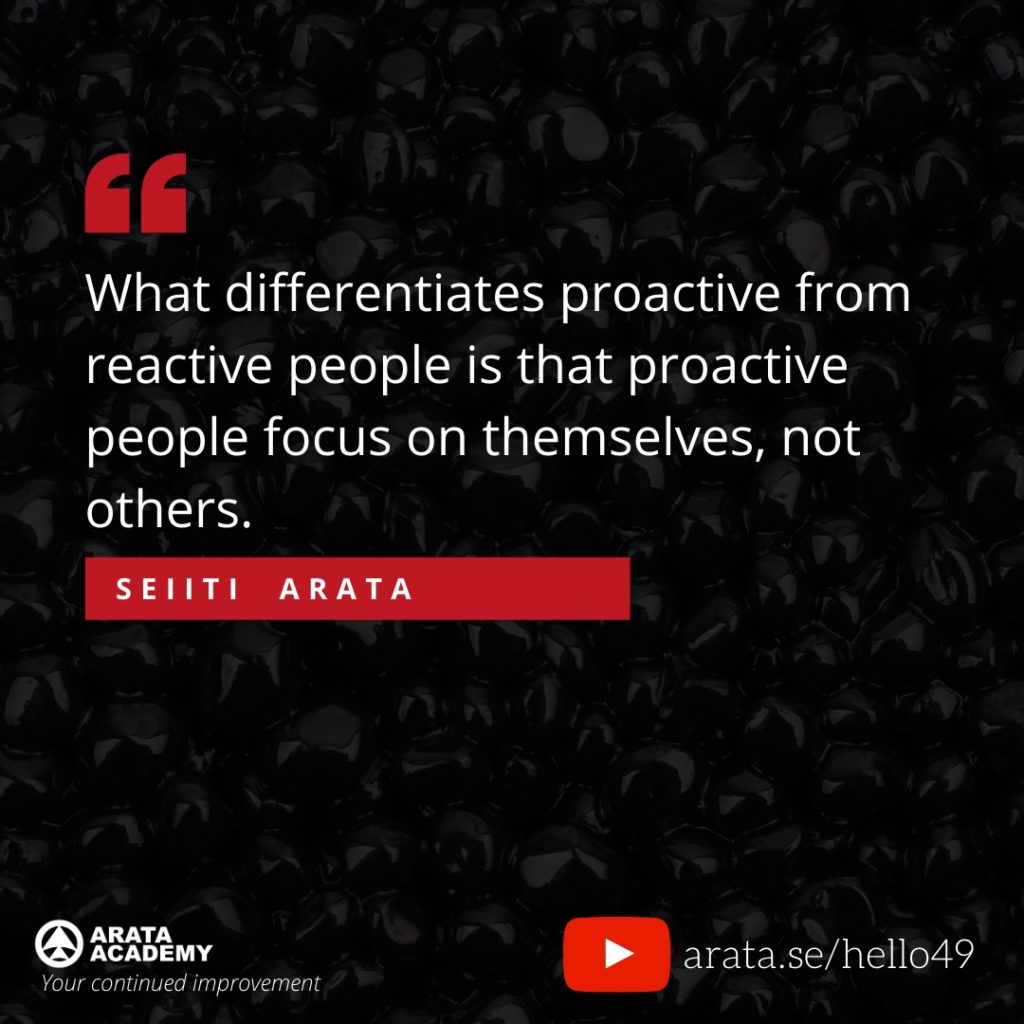
– What is the path I want to create? (proactive)
– I don’t study very well. I have difficulty with concentration and focus. (reactive)
– I want to become a good student. What can I do today that will start to improve my focus? (proactive)
– Good grief, my work is so exhausting! I hate working here. And I’m so underpaid! (reactive)
– What can I do to get promoted? What other companies have better working conditions? What training and certifications do I need to qualify? (proactive)
– It’s a shame that I am too lazy to do things. I know I could get things done if I were more focused, but it is so difficult to get started… (reactive)
– How do I increase my vitality, my energy and motivation? What are the first steps I should take? How can I outline a guaranteed plan to put into practice? (proactive)
3. Proactive people focus on themselves and not on others.
Have you noticed with these brief examples the traits that separate reactive people from proactive people? The focus should always be on our own actions, on our choices. This is the proactive mindset.
The reactive mindset is all about looking at others, looking at the environment and at the external elements over which we have no control. The reactive mindset leaves us feeling hostage to the circumstances. We see ourselves as victims of what happens in the external environment—the mood of the financial market, the moods of other people.
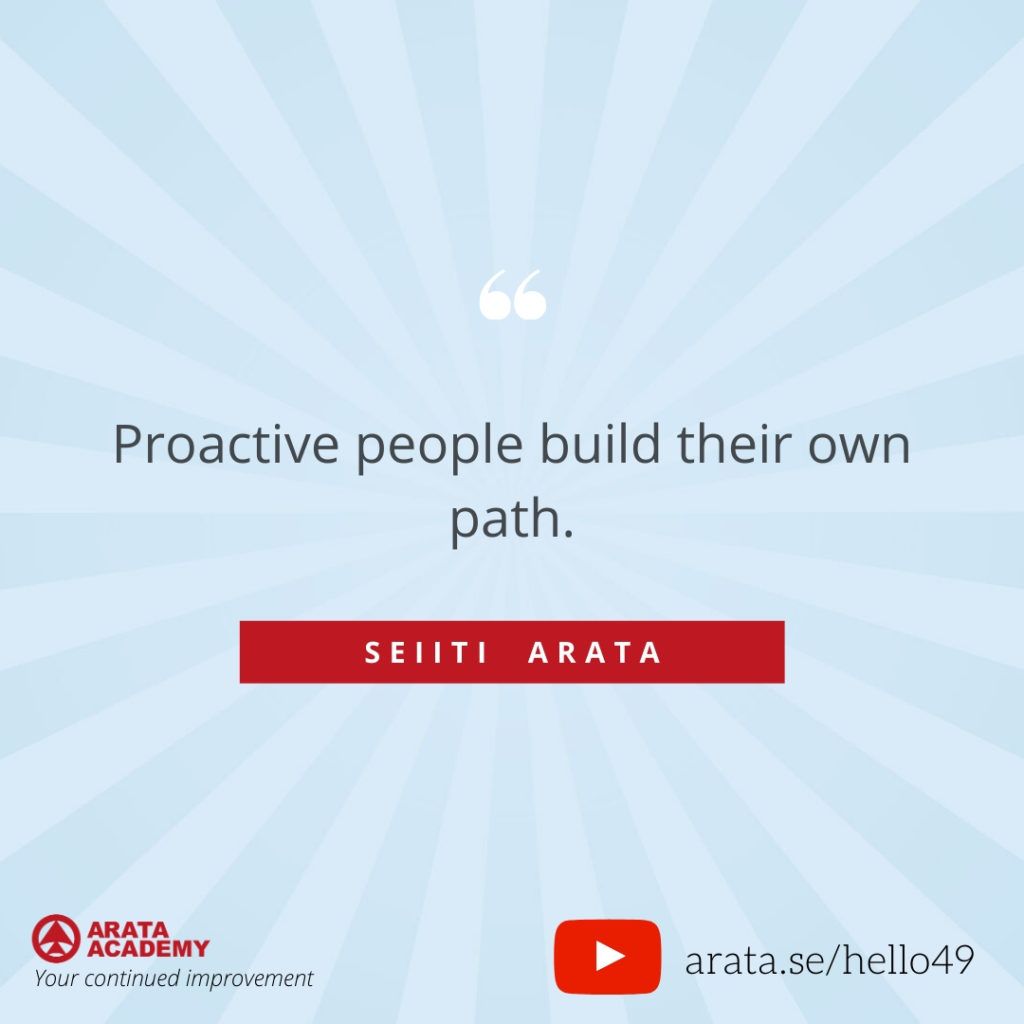
The reactive “entrepreneur” is the one who follows the fads. He starts his business because everyone else is doing it, and it looks like it works. He even begins to copy the same product line, the same advertising strategy, hoping to mimic others and also have the same result. And if the venture fails, he blames the system, he blames the economic crisis, he says there is too much bureaucracy. He complains there is too much competition or that he just had bad luck.
At this point, some people may be getting angry and saying that it’s too naive to think all depends on being proactive. That is not what we are saying! We want to find an intelligent balance to make the best choices.
Thus, if the economic environment is not favourable, we will not be blind to this fact. We will take it into account and will use that information to improve our proactive plans. We will be more cautious with spending. We will keep a financial reserve that will see us through the economic crisis. We will keep in mind that the break-even point may be delayed. And we will constantly be improving ourselves, studying and making the necessary adjustments to our plans.
In this process, we need to stay focused on the right things. That’s why I always invite you to enroll now in our FOCUS course. FOCUS is specially produced to be a fast course that you will complete in just one day. Visit arata.se/focuscourse to start your training now.
